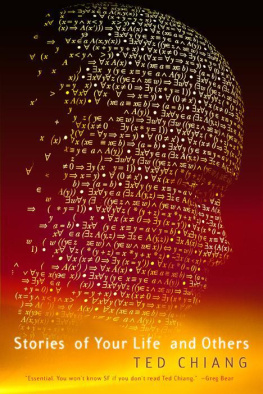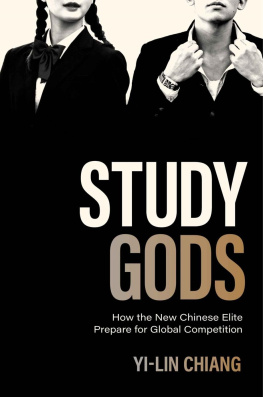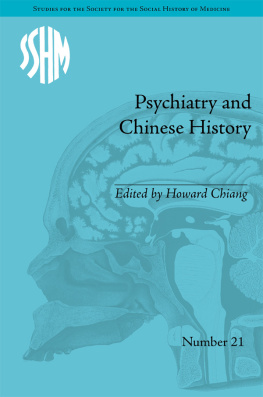Ted Chiang - Division by Zero
Here you can read online Ted Chiang - Division by Zero full text of the book (entire story) in english for free. Download pdf and epub, get meaning, cover and reviews about this ebook. genre: Science fiction. Description of the work, (preface) as well as reviews are available. Best literature library LitArk.com created for fans of good reading and offers a wide selection of genres:
Romance novel
Science fiction
Adventure
Detective
Science
History
Home and family
Prose
Art
Politics
Computer
Non-fiction
Religion
Business
Children
Humor
Choose a favorite category and find really read worthwhile books. Enjoy immersion in the world of imagination, feel the emotions of the characters or learn something new for yourself, make an fascinating discovery.

- Book:Division by Zero
- Author:
- Genre:
- Rating:4 / 5
- Favourites:Add to favourites
- Your mark:
- 80
- 1
- 2
- 3
- 4
- 5
Division by Zero: summary, description and annotation
We offer to read an annotation, description, summary or preface (depends on what the author of the book "Division by Zero" wrote himself). If you haven't found the necessary information about the book — write in the comments, we will try to find it.
Division by Zero — read online for free the complete book (whole text) full work
Below is the text of the book, divided by pages. System saving the place of the last page read, allows you to conveniently read the book "Division by Zero" online for free, without having to search again every time where you left off. Put a bookmark, and you can go to the page where you finished reading at any time.
Font size:
Interval:
Bookmark:
Division by Zero
By Ted Chiang
Dividing a number by zero doesn't produce an infinitely large number as an answer. The reason is that division is defined as the inverse of multiplication; if you divide by zero, and then multiply by zero, you should regain the number you started with. However, multiplying infinity by zero produces only zero, not any other number. There is nothing which can be multiplied by zero to produce a nonzero result; therefore, the result of a division by zero is literally undefined.
1aRenee was looking out the window when Mrs. Rivas approached.
Leaving after only a week? Hardly a real stay at all. Lord knows I won't be leaving for a long time.
Renee forced a polite smile. I'm sure it won't be long for you. Mrs. Rivas was the manipulator in the ward; everyone knew that her attempts were merely gestures, but the aides wearily paid attention to her lest she succeed accidentally.
Ha. They wish I'd leave. You know what kind of liability they face if you die while you're on status?
Yes, I know.
That's all they're worried about, you can tell. Always their liability
Renee tuned out and returned her attention to the window, watching a contrail extrude itself across the sky.
Mrs. Norwood? a nurse called. Your husband's here.
Renee gave Mrs. Rivas another polite smile and left.
1bCarl signed his name yet another time, and finally the nurses took away the forms for processing.
He remembered when he had brought Renee in to be admitted, and thought of all the stock questions at the first interview. He had answered them all stoically.
Yes, she's a professor of mathematics. You can find her in Who's Who.
No, I'm in biology.
And:
I had left behind a box of slides that I needed.
No, she couldn't have known.
And, just as expected:
Yes, I have. It was about twenty years ago, when I was a grad student.
No, I tried jumping.
No, Renee and I didn't know each other then.
And on and on.
Now they were convinced that he was competent and supportive, and were ready to release Renee into an outpatient treatment program.
Looking back, Carl was surprised in an abstracted way. Except for one moment, there hadn't been any sense of deja vu at any time during the entire ordeal. All the time he was dealing with the hospital, the doctors, the nurses: the only accompanying sensation was one of numbness, of sheer tedious rote.
2There is a well-known proof that demonstrates that one equals two. It begins with some definitions: Let a = 1; let b = 1. It ends with the conclusion a = 2a, that is, one equals two. Hidden inconspicuously in the middle is a division by zero, and at that point the proof has stepped off the brink, making all rules null and void. Permitting division by zero allows one to prove not only that one and two are equal, but that any two numbers at all real or imaginary, rational or irrational are equal.
2aAs soon as she and Carl got home, Renee went to the desk in her study and began turning all the papers facedown, blindly sweeping them together into a pile; she winced whenever a corner of a page faced up during her shuffling. She considered burning the pages, but that would be merely symbolic now. She'd accomplish as much by simply never glancing at them.
The doctors would probably describe it as obsessive behavior. Renee frowned, reminded of the indignity of being a patient under such fools. She remembered being on suicide status, in the locked ward, under the supposedly round-the-clock observation of the aides. And the interviews with the doctors, who were so condescending, so obvious. She was no manipulator like Mrs. Rivas, but it really was easy. Simply say I realize I'm not well yet, but I do feel better, and you'd be considered almost ready for release.
2bCarl watched Renee from the doorway for a moment, before he passed down the hallway. He remembered the day, fully two decades past, when he himself had been released. His parents had picked him up, and on the trip back his mother had made some inane comment about how glad everyone would be to see him, and he was just barely able to restrain himself from shaking her arm off his shoulders.
He had done for Renee what he would have appreciated during his period under observation. He had come to visit every day, even though she refused to see him at first, so that he wouldn't be absent when she did want to see him. Sometimes they talked, and sometimes they simply walked around the grounds. He could find nothing wrong in what he did, and he knew that she appreciated it.
Yet, despite all his efforts, he felt no more than a sense of duty towards her.
3In the Principia Mathematica, Bertrand Russell and Alfred Whitehead attempted to give a rigorous foundation to mathematics using formal logic as their basis. They began with what they considered to be axioms, and used those to derive theorems of increasing complexity. By page 362, they had established enough to prove 1 + 1 = 2.
3aAs a child of seven, while investigating the house of a relative, Renee had been spellbound at discovering the perfect squares in the smooth marble tiles of the floor. A single one, two rows of two, three rows of three, four rows of four: the tiles fit together in a square. Of course. No matter which side you looked at it from, it came out the same. And more than that, each square was bigger than the last by an odd number of tiles. It was an epiphany. The conclusion was necessary: it had a rightness to it, confirmed by the smooth, cool feel of the tiles. And the way the tiles were fitted together, with such incredibly fine lines where they met; she had shivered at the precision.
Later on there came other realizations, other achievements. The astonishing doctoral dissertation at twenty-three, the series of acclaimed papers; people compared her to Von Neumann, universities wooed her. She had never paid any of it much attention. What she did pay attention to was that same sense of rightness, possessed by every theorem she learned, as insistent as the tiles' physicality, and as exact as their fit.
3bCarl felt that the person he was today was born after his attempt, when he met Laura. After being released from the hospital, he was in no mood to see anyone, but a friend of his had managed to introduce him to Laura. He had pushed her away initially, but she had known better. She had loved him while he was hurting, and let him go once he was healed. Through knowing her Carl had learned about empathy, and he was remade.
Laura had moved on after getting her own master's degree, while he stayed at the university for his doctorate in biology. He suffered various crises and heartbreaks later on in life, but never again despair.
Carl marveled when he thought about what kind of person she was. He hadn't spoken to her since grad school; what had her life been like over the years? He wondered whom else she had loved. Early on he had recognized what kind of love it was, and what kind it wasn't, and he valued it immensely.
4In the early nineteenth century, mathematicians began exploring geometries that differed from Euclidean geometry; these alternate geometries produced results that seemed utterly absurd, but they didn't produce logical contradictions. It was later shown that these non-Euclidean geometries were consistent relative to Euclidean geometry: they were logically consistent, as long as one assumed that Euclidean geometry was consistent.
The proof of Euclidean geometry's consistency eluded mathematicians. By the end of the nineteenth century, the best that was achieved was a proof that Euclidean geometry was consistent as long as arithmetic was consistent.
4aAt the time, when it all began, Renee had thought it little more than an annoyance. She had walked down the hall and knocked on the open door of Peter Fabrisi's office. Pete, got a minute?
Font size:
Interval:
Bookmark:
Similar books «Division by Zero»
Look at similar books to Division by Zero. We have selected literature similar in name and meaning in the hope of providing readers with more options to find new, interesting, not yet read works.
Discussion, reviews of the book Division by Zero and just readers' own opinions. Leave your comments, write what you think about the work, its meaning or the main characters. Specify what exactly you liked and what you didn't like, and why you think so.











